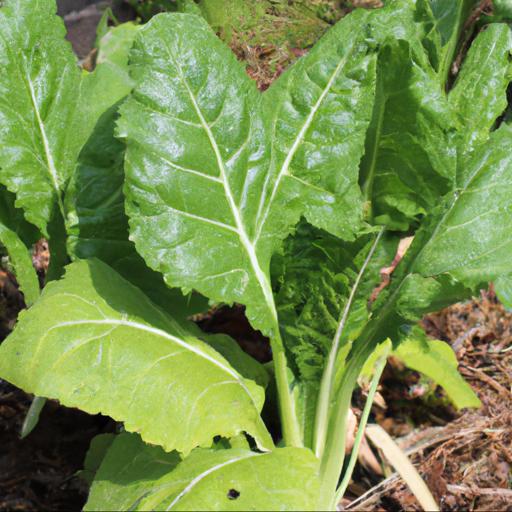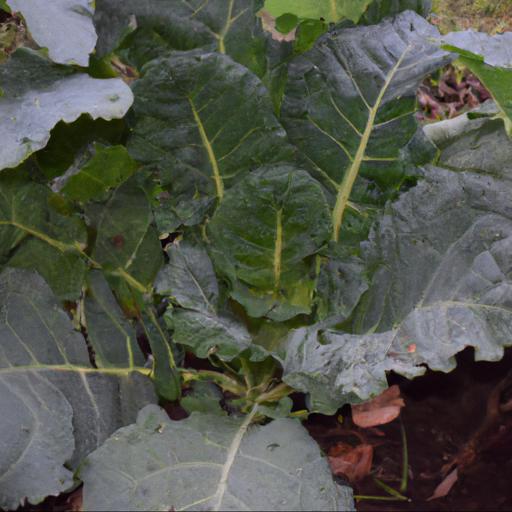Are you looking for the best winter vegetables to grow in your garden? Growing your own vegetables is a great way to enjoy fresh, nutritious produce all year round.
Winter is a great time to get started, as many vegetables thrive in cooler temperatures. From hearty root vegetables to leafy greens, there are plenty of delicious options to choose from. In this blog, we’ll explore the best winter vegetables to grow, as well as tips and tricks to ensure success.
So, if you’re ready to get growing, let’s dive in!
Benefits of growing winter vegetables

As a UK gardening expert, I am always excited to explain the benefits of growing winter vegetables in your garden. Whether you are a new gardener or an experienced one, there are so many great options for winter produce that are easy to grow and give you tasty, nutritious results. Winter vegetables generally require a shorter growing season, less water and less care.
They are also more tolerant of cold temperatures and can give you a delicious harvest earlier than other produce. One of the best vegetables to grow for winter are winter squashes.
Squashes are a type of gourd and include acorn, butternut, delicata and spaghetti squash, to name a few. These vegetables have a long growing season, so you need to make sure you begin them early in the summer. Winter squash are very nutritious and will provide you with vitamin A and C, fiber and complex carbohydrates.
The good thing about squash as well is that they store well, so you can enjoy your harvest through the winter months. Another great winter vegetable is kale.
Kale can tolerate temperate climate and requires less water than other leafy greens such as lettuce. It is full of important vitamins and minerals such as vitamin A, C and K.
Kale usually gives you a better harvest in the winter months when it is cooler, and the leaves stay crisp longer. You can also keep kale in the refrigerator for up to a week. Finally, root vegetables make great winter produce.
Some of the best root vegetables are radish, carrots, potatoes, beets and turnips. These root vegetables require very little care and are frost tolerant, so they can survive colder temperatures. Root vegetables are a great source of vitamins and minerals, so you can get a healthy meal from the winter harvest. Overall, growing winter vegetables can be an excellent addition to your garden. Winter squashes, kale and root vegetables are just a few of the many delicious and nutritious options you have for winter harvest. All of these vegetables are easy to grow and require very little care, so they make a great choice for any gardener.
Types of winter vegetables to grow

Gardening in the winter can be a challenge for some, but with the right knowledge and effort, anyone can create a beautiful and productive winter vegetable garden. Growing a variety of winter vegetables can extend the harvest season and add valuable nutrition to your daily meals. From hearty greens to nutrient-packed root vegetables, here is a list of the best winter vegetables to grow.
Kale is one of the hardier winter vegetables, capable of withstanding moderate freezes and thaws. The hearty green is an excellent source of vitamins K, A, and C, as well as filling fiber.
Kale is also very easy to grow, tolerating many soil types and capable of being direct seeded right into the ground. Root vegetables, such as beets and carrots, are some of the most dependable winter vegetables. Varieties can be sown in early summer and then left to mature over the course of the autumn and winter months.
Carrots prefer well-drained, loose soil and can be stored for several months without a significant reduction in quality. Finally, don’t forget about radishes and turnips.
These brightly-colored root vegetables are a source of vitamin C, and require minimal effort to grow. Plant a few radishes for a fast-maturing crop that can be ready in as little as 25 days from seeding.
By investing a bit of time and effort into creating a winter vegetable garden, it is possible to enjoy a season of delicious, nutrient-packed vegetables. With the right varieties and a bit of know-how it’s possible to extend the harvest and ensure healthy family meals even in the most inclement weather.
Tips for growing winter vegetables

As an expert gardener in the UK, I know how important it is to be able to grow nutritious winter vegetables. In the winter months, sunlight is at a premium and some plants just don’t thrive. That’s why it’s essential tochoose the best winter vegetables for your UK garden.
Here are some tips for growing winter vegetables that can thrive in the colder temperatures. The first tip for growing winter vegetables is to select varieties that are suited to UK winter climates.
Look for varieties that are cold hardy, like kale, leeks, Brussels sprouts, broccoli, and cabbage. These vegetables will grow better and be more productive in the cool UK winter weather. Another tip is to provide your vegetables with the right amount of light and soil temperature.
Cold-weather vegetables need 10-12 hours of direct sun a day, so select a sunny location for your winter vegetables. Additionally, it’s important to keep the soil temperature above freezing.
Covering the soil with a light blanket of mulch or compost can help retain the warmth. Last but not least, be sure to water your winter veggies properly.
Don’t leave the soil too wet— overwatering can cause problems like root rot. Water your vegetables early in the day and keep them evenly moist, but not soggy. With the right techniques and practices, you can grow delicious winter vegetables that will see you through the colder months.
Bottom Line
Growing vegetables during the winter can be a rewarding and enjoyable experience. With the right preparation and selection of vegetables, you can enjoy a bountiful harvest of fresh, nutritious produce even in the coldest months.
Popular winter vegetables include broccoli, kale, Brussels sprouts, cabbage, cauliflower, and carrots. These vegetables can all be grown in cold weather and can be harvested for months. With proper planning and care, you can have a successful winter vegetable garden.
FAQ
What are the best winter vegetables to grow?
The best winter vegetables to grow include kale, turnips, carrots, beets, Brussels sprouts, cabbage, cauliflower, and radishes.
What are the benefits of growing winter vegetables?
The benefits of growing winter vegetables include extended harvests, improved soil health, and increased nutrient availability. Winter vegetables can also help to protect other crops from cold weather, as well as provide additional food sources during the winter months.
What are the best planting techniques for winter vegetables?
The best planting techniques for winter vegetables include planting in raised beds, using row covers to protect plants from cold temperatures, and mulching to help retain moisture and keep the soil warm. Additionally, it is important to choose varieties of vegetables that are suited to the local climate and to plant at the right time of year.
What are the best soil conditions for growing winter vegetables?
The best soil conditions for growing winter vegetables are well-draining, nutrient-rich soil with a pH level between 6.0 and 7.0. The soil should be kept moist but not soggy, and should be amended with compost or other organic matter to improve drainage and nutrient availability.
What are the best varieties of winter vegetables to grow?
The best varieties of winter vegetables to grow depend on the climate, but some of the most popular include kale, carrots, Brussels sprouts, cabbage, beets, turnips, and parsnips.
What are the best methods for harvesting winter vegetables?
The best methods for harvesting winter vegetables depend on the type of vegetable. For root vegetables such as carrots, parsnips, and potatoes, the best method is to dig them out of the ground with a spade or fork. For leafy greens such as kale, spinach, and cabbage, the best method is to cut the leaves off the plant with a sharp knife.

